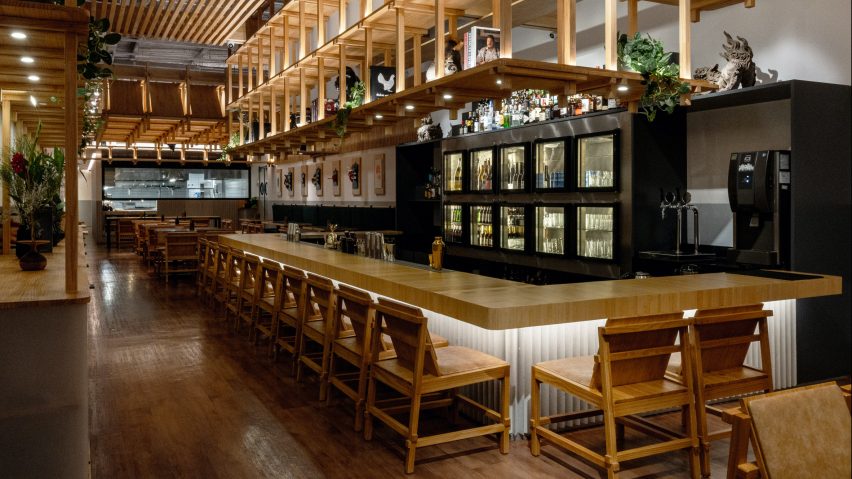
Coletivo de Arquitetos takes cues from Japan for São Paulo restaurant Kotori
Brazilian studio Coletivo de Arquitetos has completed a Japanese restaurant in São Paulo's Pinheiros neighbourhood, using traditional wood joinery techniques from Japan.
Completed this year, the 350 square-metre restaurant Kotori has only a few seats at the front, facing the street through a full-height storefront window.
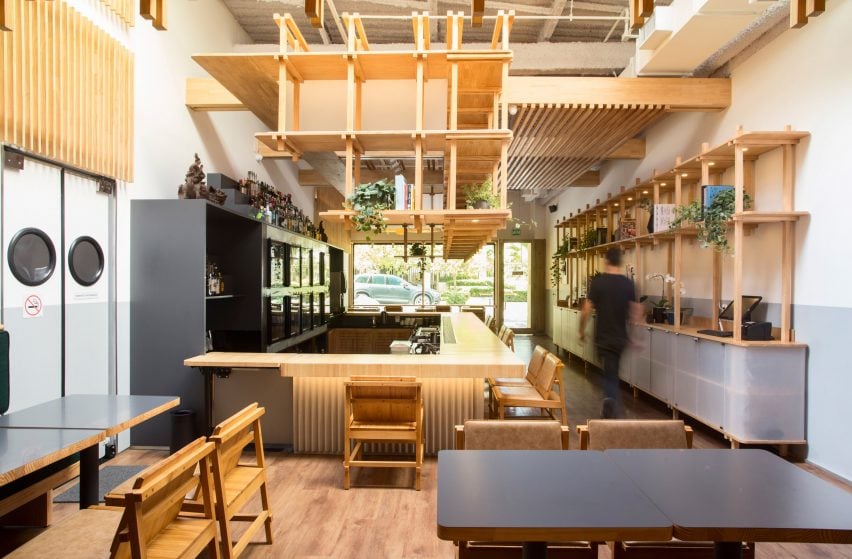
On the exterior, the architects clad the facade in wood, with overhanging brackets that suggest the nature of the space within.
Most of the long, narrow dining room is occupied by the bar with additional table seating at the back of the restaurant.
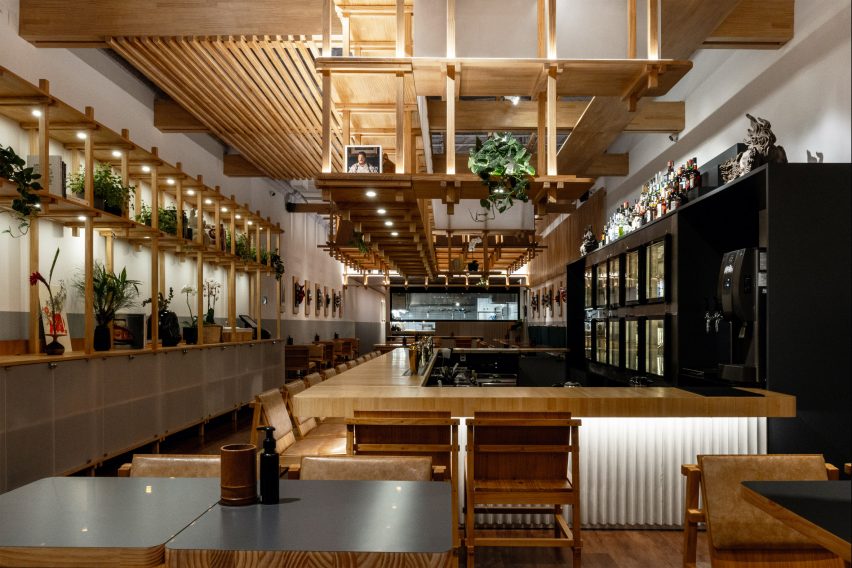
The architects hung a wooden lattice from the existing space's tall ceilings, which covers the dining area and helps delineate this space from the bar and entrance area.
The overlapping dowel elements hold up flat wooden panels that conceal lighting above while giving the space a sense of intimacy.
Over the bar, this structure acts as shelving, where the owners showcase books, plants and other objects.
At the back of the space, the kitchen is visible through a large pane of glass, which allows patrons to observe chef Thiago Bañares and his team at work.
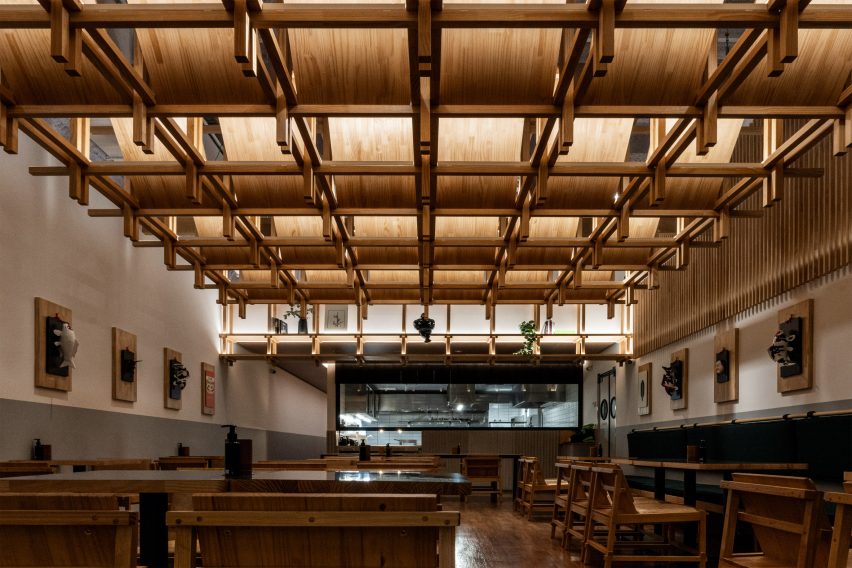
" Thiago always emphasised that he wanted to have a square kitchen with a central island able to provide him and his collaborators a total view of all the work areas," Coletivo de Arquitetos said.
Translucent film was used for some of the custom furniture to look like traditional Japanese paper known as washi. Along the walls, the architects hung sculptures of koi fish.
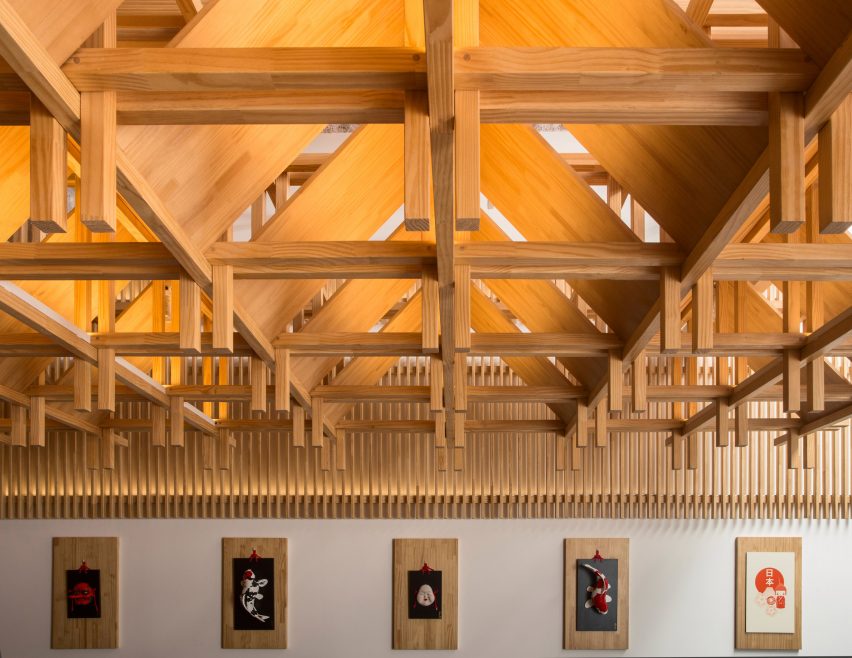
Other finishes throughout the space include wooden slat ceilings and walls, simple wooden furniture, and forest green accents.
Brazil is among the countries with the largest Japanese population outside of Japan itself. Other recently completed Japanese eateries around the world include a venue with stark black interiors in Colorado by Roth Sheppard Architects and an open-air dining room topped by a thatched roof by Mexico's West coast.
The photography is by Rubens Kato, unless otherwise indicated.
Project credits:
Architect: Coletivo de Arquitetos
Coletivo de Arquitetos design team: Guile Amadeu, Rodrigo Lacerda e Luna Viana